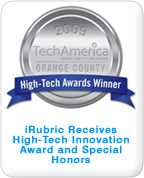rubric gallery
rubrics by smulford
public gallery
Filters
| Filter by: |
|
rubrics by smulford
See a list of rubrics by smulford. Copy rubrics to your zone. Bookmark rubrics for future use Build, share, exchange, and reuse rubrics. Find rubrics by category and type.
Click on rubric title to preview, edit, print, copy, or do more with it.
 Quickly preview a rubric in a popup window.
Quickly preview a rubric in a popup window.
Click on rubric title to preview, edit, print, copy, or do more with it.
Education
Sites & Communities
Support
Enterprise
Copyright ©
2024
Reazon Systems, Inc. All rights reserved.
n98

